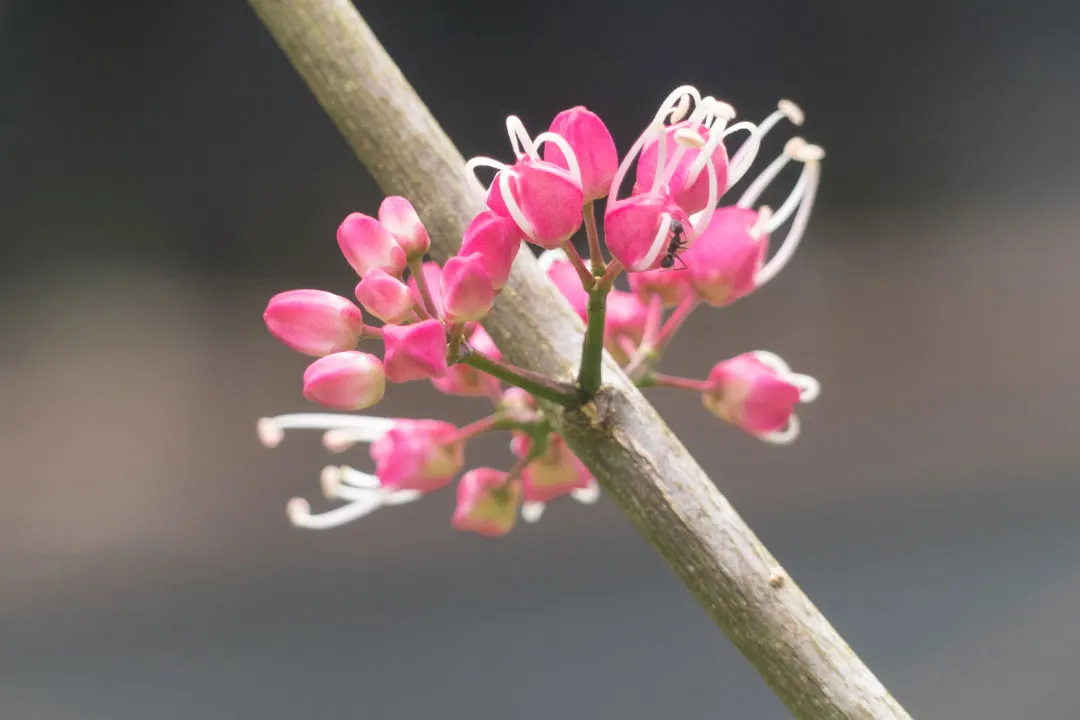Evodia rutaecarpa is a plant that is indigenous to Asia, including China and Korea. It is also referred to as Evodia or Wu-Chu-Yu in traditional Chinese medicine. For generations, many illnesses have been treated with its tiny, red, berry-like fruits. Although considerable work has to be done, current scientific study is beginning to support some of the traditional claims regarding Evodia’s health advantages, some of which will be espoused in this article.
You May Also Like:
5 Great Reasons to Try CBD for Foot Pain
Using CBD Massage Oil for Pain Management: The Surprising Benefits
Evodia: Benefits, Dosage, Side Effects, Drug Interactions, and Other Important Information is an original (HealthXWire) article.
Nature of Evodia
The Rutaceae family includes the deciduous shrub or small tree Evodia rutaecarpa. It has little The Rutaceae family of plants includes the deciduous shrub or small tree, Evodia rutaecarpa. Evodia has little red fruits and may reach heights of up to ten meters. These very bitter fruits are harvested in the late summer and early fall and sun-dried for later usage.
Alkaloids abound in Evodia chemically, especially indoloquinazoline and quinolone alkaloids like Evodiamine and rutaecarpine. In addition, limonoids, canthin-6-one alkaloids, and flavonoids are among the other bioactive substances found in Evodia. The plant’s alleged medicinal benefits are a result of these substances, both alone and together.
Health Benefits of Evodia
Evodia has a wide range of health advantages, in large part because of the variety of phytochemicals it contains. Evodiamine, the plant’s principal alkaloid, has shown evidence of having anti-inflammatory, anti-cancer, and anti-obesity properties.
Nitric oxide and prostaglandin E2, two essential mediators of the inflammatory response, are produced when Evodiamine is present, which gives it anti-inflammatory effects. In cases marked by persistent inflammation, this suppression could be advantageous.
In pre-clinical research on cancer, Evodiamine’s anti-proliferative properties on a range of cancer cell types, such as lung, breast, and prostate cancer, have showed great promise for positive potential. The stimulation of apoptosis, or programmed cell death, a critical process frequently disturbed in cancer cells, appears to be the mechanism of action.
Also, by triggering thermogenesis—a process by which the body burns calories to create heat—Evodiamine displays potential anti-obesity benefits. Evodiamine causes the activation of uncoupling proteins, which prevent cells from using energy normally and cause heat to be produced.
In addition to these primary advantages, Evodia has historically been used to treat hypertension, headaches, and gastrointestinal issues. To support these usage scientifically, additional study is necessary.

Chemistry of Evodia
Evodia contains a variety of chemical compounds, including as alkaloids, limonoids, flavonoids, and others. The plant’s alkaloids, particularly the quinolone and indoloquinazoline alkaloids, like Evodiamine and rutaecarpine, are its primary active components.
The pharmacological characteristics of Evodiamine, a bioactive quinolone alkaloid, have been thoroughly investigated. On top of that, rutaecarpine has been formally acknowledged for its ability to manage hypertension and its vasodilating action.
Evodin and limonin, two of the limonoids found in Evodia, possess anticancer characteristics, whilst canthin-6-one alkaloids are mostly recognized for their antimalarial activity.
Physiological Mechanisms of Action
The cyclooxygenase-2 (COX-2) and nitric oxide synthase (iNOS) enzymes, which are essential for the production of prostaglandins and nitric oxide, respectively, are presumed to be the cause of Evodiamine’s anti-inflammatory activity.
Evodiamine inhibits the multiplication of cancer cells by inducing apoptosis, or programmed cell death, in cancer cells. By altering the mitochondrial membrane potential, which causes the release of cytochrome c—a crucial step in the beginning of apoptosis—it accomplishes this activity.
The activity of Evodiamine on uncoupling proteins (UCPs), namely UCP1, causes it to have a thermogenic effect. By turning on UCP1, Evodiamine prevents protons from passing through the mitochondrial membrane normally, which results in energy being dissipated as heat rather than being utilized to make ATP. This technique might help you lose weight by giving you more energy.
Existing data shows that rutaecarpine, another important alkaloid in Evodia, causes vasodilation, possibly through causing the generation of nitric oxide, a strong vasodilator. This result could help with hypertension management.
Despite great progress, there is still much to learn about the physiological mechanisms through which Evodia’s bioactive chemicals work. Individual reactions to these substances might differ significantly, which emphasizes the need for medical care while using Evodia as a supplement.


Optimal Dosage and Application of Evodia
The best Evodia dose mostly relies on the medication’s type and the illness being treated. 3 to 9 grams of a decoction are frequently advised as a daily dose in traditional Chinese medicine. Evodia pills sold in stores often recommend daily dosages between 200 and 500 mg. These suggestions could change, so it’s important to for you speak with a healthcare provider before you are starting any supplements routine.
Side Effects and Safety Profile
Evodia is often well tolerated when taken at the indicated dosage. However, adverse reactions including nausea, vomiting, and stomach discomfort might happen. It can, in extremely rare circumstances, affect heart rhythm or decrease blood coagulation.
It’s also important for you to note that Evodia’s safety in children, pregnant or nursing women, and anyone with severe liver or renal illness has not been determined. Unless specifically instructed differently by a medical practitioner, these people should refrain from using this supplement.


Potential Substance Interactions
Due to its impact on liver enzymes involved in drug metabolism, Evodia may interact with several medicines. In particular, it could have an impact on the way cytochrome P450 3A4 (CYP3A4), a key enzyme in drug metabolism, processes medicines.
Evodia may also theoretically improve the effects of anticoagulant and antiplatelet drugs due to its tendency to reduce blood coagulation. As a result, those taking these drugs should use Evodia with caution and under a doctor’s supervision.
Best Responsible Use
The excellent medicinal plant Evodia rutaecarpa has a wide range of bioactive chemicals that have several potential health advantages. To prevent any adverse effects or undesirable interactions, it should be taken cautiously and under medical supervision, as with other supplements. To comprehend the totality of its health advantages completely and safety profile, more study is required.


Evodia:
Conclusion
Evodia is packed with phytochemicals that lend themselves to potential health improvements. It is an East Asian fruit-bearing plant. Everyone who uses Evodia should do so as long as they are in consultation with a health care professional, especially people with malaria, blood pressure issues, certain cancers, as well as people who are pregnant or nursing.
Western scientific research is slowly but surely catching up with Eastern medicinal practice with respect to awareness of Evodia’s medical applications. If you are looking for a nutrient rich plant with a long history of use for treatment of both everyday ailments as well as specific and severe disorders, consider Evodia.
References:
- “Evodiamine inhibits migration and invasion of nasopharyngeal carcinoma cells in vitro via repressing MMP-2 expression.” Retrieved from: https://pubmed.ncbi.nlm.nih.gov/26546460/
- “Evodiamine as an anticancer agent: a comprehensive review on its therapeutic application, pharmacokinetic, toxicity, and metabolism in various cancers.” Retrieved from: https://link.springer.com/article/10.1007/s10565-022-09772-8
- “Uterotonic Effect of Evodia rutaecarpa Alkalods.” Retrieved from: https://pubs.acs.org/doi/10.1021/np50011a008
Important Note: The information contained in this article is for general informational purposes only, and should not be construed as health or medical advice, nor is it intended to diagnose, prevent, treat, or cure any disease or health condition. Before embarking on any diet, fitness regimen, or program of nutritional supplementation, it is advisable to consult your healthcare professional in order to determine its safety and probable efficacy in terms of your individual state of health.
Regarding Nutritional Supplements Or Other Non-Prescription Health Products: If any nutritional supplements or other non-prescription health products are mentioned in the foregoing article, any claims or statements made about them have not been evaluated by the U.S. Food and Drug Administration, and such nutritional supplements or other health products are not intended to diagnose, treat, cure, or prevent any disease.
Table of Contents


